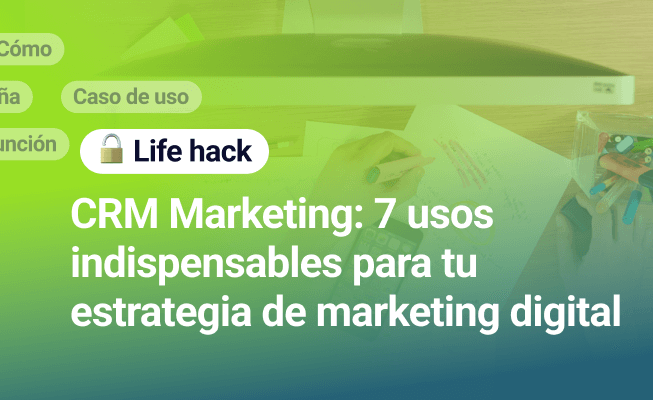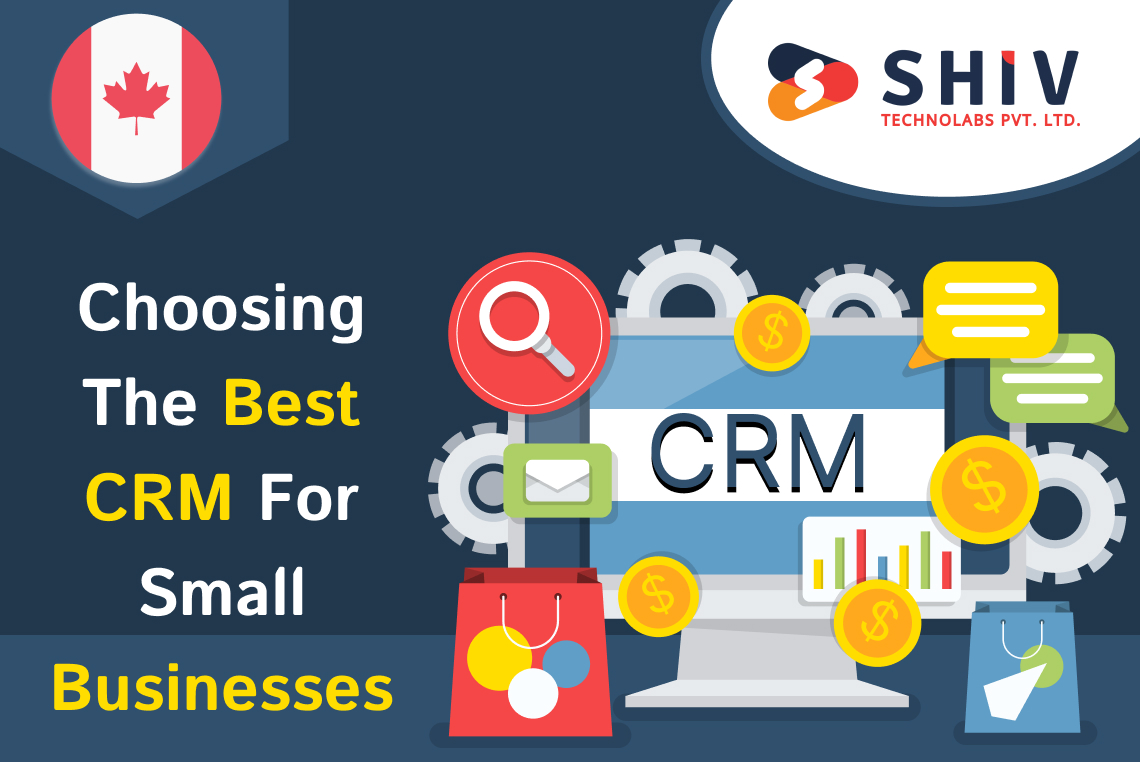
Unlock Explosive Growth: The Ultimate Guide to CRM Marketing for Your Business
In today’s hyper-competitive business landscape, simply having a great product or service isn’t enough. You need to understand your customers, nurture relationships, and personalize every interaction to stand out. That’s where Customer Relationship Management (CRM) marketing comes in. It’s not just about storing customer data; it’s about leveraging that data to create meaningful experiences that drive loyalty, boost sales, and unlock explosive growth. This comprehensive guide will walk you through everything you need to know about CRM marketing, from the fundamentals to advanced strategies, helping you transform your business.
What is CRM Marketing? Demystifying the Core Concept
At its heart, CRM marketing is a strategic approach to building and nurturing customer relationships using a CRM system. It involves collecting, organizing, and analyzing customer data to understand their needs, preferences, and behaviors. This understanding then informs your marketing efforts, enabling you to deliver personalized experiences that resonate with each customer.
Think of it this way: imagine you’re running a small bakery. Without CRM marketing, you might treat every customer the same. But with a CRM system, you can track their past purchases, favorite treats, and even their birthdays. You can then send personalized birthday greetings, offer exclusive discounts on their favorite pastries, and tailor your marketing messages to their specific tastes. That’s the power of CRM marketing in action.
Key Components of CRM Marketing:
- Data Collection: Gathering information about your customers from various sources, such as website interactions, social media activity, email communications, and purchase history.
- Data Organization: Storing and organizing customer data in a centralized CRM system, making it easily accessible and searchable.
- Data Analysis: Analyzing customer data to identify trends, patterns, and insights that can inform your marketing strategies.
- Personalization: Tailoring your marketing messages, offers, and experiences to individual customer preferences and needs.
- Automation: Using CRM tools to automate repetitive tasks, such as email marketing, lead nurturing, and customer segmentation.
- Measurement and Optimization: Tracking the performance of your CRM marketing campaigns and making adjustments based on the results.
The Benefits of Embracing CRM Marketing
Implementing a robust CRM marketing strategy can yield a multitude of benefits for your business, driving both short-term gains and long-term sustainable growth. Let’s delve into some of the most significant advantages:
Enhanced Customer Relationships:
CRM marketing allows you to build stronger, more meaningful relationships with your customers. By understanding their needs and preferences, you can personalize your interactions, show that you care, and foster a sense of loyalty. This leads to higher customer retention rates and increased lifetime value.
Increased Sales and Revenue:
Personalized marketing campaigns are far more effective than generic, one-size-fits-all approaches. By targeting the right customers with the right messages at the right time, you can significantly increase your sales and revenue. CRM marketing helps you identify high-potential leads, nurture them through the sales funnel, and close deals more efficiently.
Improved Customer Retention:
In today’s market, it’s often more cost-effective to retain existing customers than to acquire new ones. CRM marketing helps you keep your customers happy and engaged by providing exceptional customer service, offering personalized recommendations, and rewarding their loyalty. Happy customers are more likely to stay with you and recommend your business to others.
Streamlined Marketing Processes:
CRM systems automate many repetitive marketing tasks, such as email marketing, lead nurturing, and customer segmentation. This frees up your marketing team to focus on more strategic initiatives, such as content creation, campaign planning, and data analysis. Streamlined processes lead to increased efficiency and productivity.
Better Data-Driven Decisions:
CRM systems provide valuable insights into your customers’ behavior and preferences. By analyzing this data, you can make better-informed decisions about your marketing strategies, product development, and customer service initiatives. Data-driven decisions lead to improved business outcomes.
Enhanced Customer Service:
CRM systems provide your customer service team with a 360-degree view of each customer, including their purchase history, communication history, and support requests. This allows your team to provide faster, more personalized, and more effective customer service, leading to increased customer satisfaction.
Choosing the Right CRM System: A Step-by-Step Guide
Selecting the right CRM system is crucial for the success of your CRM marketing efforts. With so many options available, it can feel overwhelming. Here’s a step-by-step guide to help you choose the perfect CRM for your business:
1. Assess Your Needs:
Before you start evaluating CRM systems, take the time to understand your specific needs and goals. Consider the following questions:
- What are your primary marketing objectives?
- What customer data do you need to collect and track?
- What marketing automation features do you require?
- How many users will need access to the CRM system?
- What is your budget?
- What integrations do you need with other tools (e.g., email marketing platforms, e-commerce platforms)?
2. Research CRM Vendors:
Once you have a clear understanding of your needs, start researching different CRM vendors. Some popular options include:
- Salesforce: A comprehensive CRM platform suitable for businesses of all sizes.
- HubSpot CRM: A free CRM platform with powerful marketing automation features.
- Zoho CRM: A feature-rich CRM platform with a focus on sales and marketing.
- Microsoft Dynamics 365: A versatile CRM platform that integrates with other Microsoft products.
- Pipedrive: A sales-focused CRM platform designed for small businesses.
3. Evaluate Features and Functionality:
When evaluating CRM systems, pay close attention to the features and functionality that are most important to your business. Look for features such as:
- Contact management
- Lead management
- Sales automation
- Marketing automation
- Email marketing
- Reporting and analytics
- Integration capabilities
- Mobile access
4. Consider Scalability and Customization:
Choose a CRM system that can scale with your business as it grows. Also, consider the level of customization the platform offers. Can you customize the system to meet your specific needs and workflows?
5. Evaluate Pricing and Support:
Compare the pricing plans of different CRM vendors and choose the plan that best fits your budget. Also, consider the level of customer support offered by each vendor. Do they offer phone support, email support, or live chat?
6. Request Demos and Trials:
Before making a final decision, request demos and free trials of the CRM systems you’re considering. This will give you a chance to experience the platform firsthand and see if it’s a good fit for your business.
7. Implement and Train Your Team:
Once you’ve chosen a CRM system, it’s time to implement it and train your team. Provide your team with the necessary training and support to ensure they can effectively use the system.
Crafting a Winning CRM Marketing Strategy
Implementing a CRM system is just the first step. To truly reap the rewards of CRM marketing, you need a well-defined strategy. Here’s how to craft a winning CRM marketing strategy:
1. Define Your Goals and Objectives:
What do you want to achieve with your CRM marketing efforts? Are you looking to increase sales, improve customer retention, or generate more leads? Clearly define your goals and objectives to guide your strategy.
2. Segment Your Customer Base:
Divide your customer base into segments based on their demographics, behaviors, and purchase history. This will allow you to tailor your marketing messages and offers to specific groups of customers.
3. Develop Buyer Personas:
Create detailed buyer personas that represent your ideal customers. This will help you understand their needs, motivations, and pain points, and tailor your marketing efforts accordingly.
4. Create Personalized Content:
Develop personalized content that resonates with each customer segment and buyer persona. This could include email newsletters, targeted ads, and personalized website content.
5. Automate Your Marketing Workflows:
Use your CRM system to automate repetitive marketing tasks, such as email marketing, lead nurturing, and customer segmentation. This will save you time and effort, and allow you to focus on more strategic initiatives.
6. Track and Measure Your Results:
Regularly track and measure the performance of your CRM marketing campaigns. Use the data to identify what’s working and what’s not, and make adjustments to your strategy as needed.
7. Continuously Optimize Your Strategy:
CRM marketing is an ongoing process. Continuously optimize your strategy based on the results you’re seeing. Experiment with new approaches and tactics to find what works best for your business.
Advanced CRM Marketing Strategies for Maximum Impact
Once you’ve mastered the basics of CRM marketing, you can start exploring more advanced strategies to maximize your impact:
1. Lead Scoring and Nurturing:
Use lead scoring to identify high-potential leads and nurture them through the sales funnel with targeted content and personalized interactions. This can significantly improve your conversion rates.
2. Customer Journey Mapping:
Map out the customer journey to understand how customers interact with your business at each stage of the sales process. This will help you identify opportunities to improve the customer experience and optimize your marketing efforts.
3. Cross-Selling and Up-Selling:
Use your CRM data to identify cross-selling and up-selling opportunities. Recommend related products or services to customers based on their past purchases and preferences. This can increase your average order value.
4. Loyalty Programs:
Implement a loyalty program to reward your most valuable customers and encourage repeat business. This can help you increase customer retention and lifetime value.
5. Social Media Integration:
Integrate your CRM system with your social media channels to track customer interactions, monitor social media mentions, and engage with your customers in real time. This can help you build brand awareness and foster a sense of community.
6. Predictive Analytics:
Use predictive analytics to forecast customer behavior and identify potential churn risks. This will allow you to proactively address customer concerns and prevent them from leaving.
7. Personalization at Scale:
Leverage advanced personalization techniques, such as dynamic content and behavioral targeting, to deliver highly personalized experiences to your customers at scale. This can significantly improve engagement and conversions.
CRM Marketing Best Practices: Tips for Success
To ensure the success of your CRM marketing efforts, it’s important to follow these best practices:
1. Focus on the Customer:
Always put the customer first. Make sure your marketing efforts are focused on providing value to your customers and meeting their needs.
2. Keep Your Data Accurate and Up-to-Date:
The quality of your CRM data is crucial for the success of your CRM marketing efforts. Regularly clean and update your data to ensure its accuracy.
3. Integrate Your CRM with Other Tools:
Integrate your CRM system with other tools, such as your email marketing platform, e-commerce platform, and social media channels. This will provide you with a holistic view of your customers and enable you to deliver more personalized experiences.
4. Train Your Team:
Provide your team with the necessary training and support to ensure they can effectively use the CRM system and implement your CRM marketing strategy.
5. Measure and Analyze Your Results:
Regularly track and measure the performance of your CRM marketing campaigns. Use the data to identify what’s working and what’s not, and make adjustments to your strategy as needed.
6. Stay Up-to-Date with the Latest Trends:
The world of CRM marketing is constantly evolving. Stay up-to-date with the latest trends and best practices to ensure you’re getting the most out of your CRM efforts.
7. Prioritize Data Privacy and Security:
Protect your customers’ data by implementing robust data privacy and security measures. Comply with all relevant data privacy regulations, such as GDPR and CCPA.
Real-World CRM Marketing Examples: Inspiration and Insights
Let’s explore some real-world examples of how businesses are successfully leveraging CRM marketing:
Example 1: Amazon
Amazon is a master of CRM marketing. They use customer data to personalize product recommendations, send targeted email campaigns, and offer exclusive discounts. Their personalized approach has helped them build a loyal customer base and drive significant sales growth.
Example 2: Netflix
Netflix uses CRM marketing to personalize content recommendations, based on your viewing history. They also send personalized email newsletters and offer exclusive content based on your preferences. This helps them keep their subscribers engaged and reduce churn.
Example 3: Starbucks
Starbucks uses CRM marketing to personalize the customer experience. They offer a rewards program that allows customers to earn points for their purchases. They also send personalized email offers and provide exclusive promotions based on customer preferences. This has helped them build a strong brand loyalty and increase customer lifetime value.
Example 4: Local Bakery
Even a local bakery can utilize CRM. Imagine a bakery that tracks customer’s favorite treats and birthdays. They then send personalized birthday greetings and offer exclusive discounts. This builds customer loyalty and drives repeat business.
The Future of CRM Marketing: Trends to Watch
The world of CRM marketing is constantly evolving. Here are some trends to watch:
Artificial Intelligence (AI) and Machine Learning (ML):
AI and ML are transforming CRM marketing. They are being used to automate tasks, personalize experiences, and predict customer behavior. Expect to see more AI-powered CRM tools in the future.
Hyper-Personalization:
Customers expect personalized experiences. Businesses are using data to create highly personalized marketing messages, offers, and content. This trend will continue to grow in the future.
Omnichannel Marketing:
Customers interact with businesses across multiple channels, such as email, social media, and website. Businesses are using omnichannel marketing to deliver a seamless customer experience across all channels.
Data Privacy and Security:
Data privacy and security are becoming increasingly important. Businesses must prioritize data privacy and security to build trust with their customers. Expect to see more regulations and best practices in this area.
Customer Data Platforms (CDPs):
CDPs are becoming increasingly popular. They allow businesses to collect, organize, and analyze customer data from multiple sources. This provides a more holistic view of the customer and enables businesses to deliver more personalized experiences.
Conclusion: Embracing CRM Marketing for Sustainable Growth
CRM marketing is no longer a luxury; it’s a necessity for businesses that want to thrive in today’s competitive landscape. By understanding your customers, building strong relationships, and delivering personalized experiences, you can unlock explosive growth for your business.
This guide has provided you with a comprehensive overview of CRM marketing, from the fundamentals to advanced strategies. By implementing the tips and best practices outlined in this guide, you can create a winning CRM marketing strategy that drives sales, improves customer retention, and fuels long-term sustainable growth. So, embrace the power of CRM marketing and watch your business flourish!





